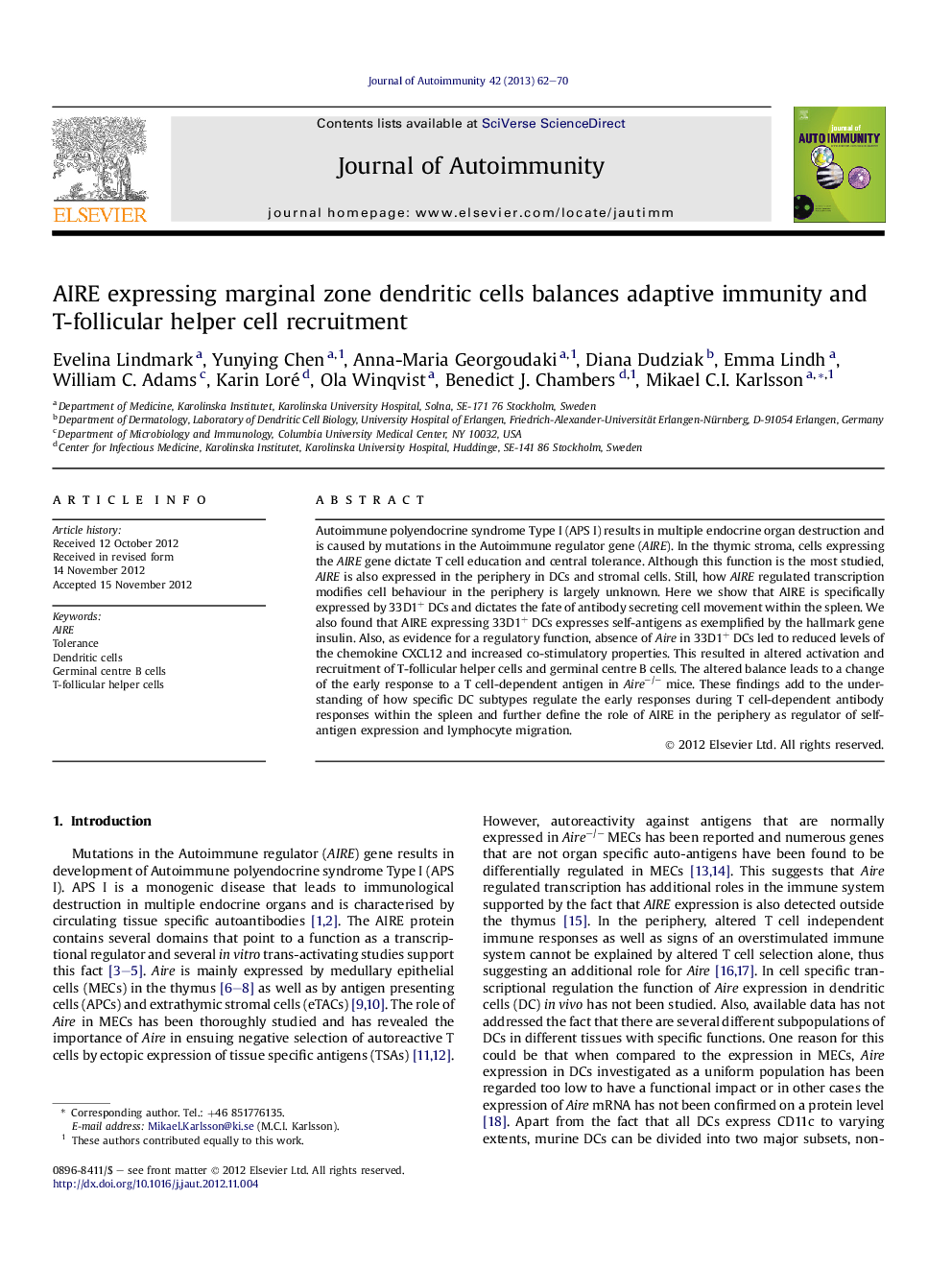| Article ID | Journal | Published Year | Pages | File Type |
|---|---|---|---|---|
| 3367882 | Journal of Autoimmunity | 2013 | 9 Pages |
Autoimmune polyendocrine syndrome Type I (APS I) results in multiple endocrine organ destruction and is caused by mutations in the Autoimmune regulator gene (AIRE). In the thymic stroma, cells expressing the AIRE gene dictate T cell education and central tolerance. Although this function is the most studied, AIRE is also expressed in the periphery in DCs and stromal cells. Still, how AIRE regulated transcription modifies cell behaviour in the periphery is largely unknown. Here we show that AIRE is specifically expressed by 33D1+ DCs and dictates the fate of antibody secreting cell movement within the spleen. We also found that AIRE expressing 33D1+ DCs expresses self-antigens as exemplified by the hallmark gene insulin. Also, as evidence for a regulatory function, absence of Aire in 33D1+ DCs led to reduced levels of the chemokine CXCL12 and increased co-stimulatory properties. This resulted in altered activation and recruitment of T-follicular helper cells and germinal centre B cells. The altered balance leads to a change of the early response to a T cell-dependent antigen in Aire−/− mice. These findings add to the understanding of how specific DC subtypes regulate the early responses during T cell-dependent antibody responses within the spleen and further define the role of AIRE in the periphery as regulator of self-antigen expression and lymphocyte migration.
► AIRE is distinctively expressed by marginal zone DCs in the spleen. ► Aire deficient mice have a decreased extrafollicular response against NP-CGG. ► Increased maturation of germinal centres and Tfh cells in Aire−/− spleens. ► Points towards an important role for MZ DCs in regulating peripheral tolerance.
